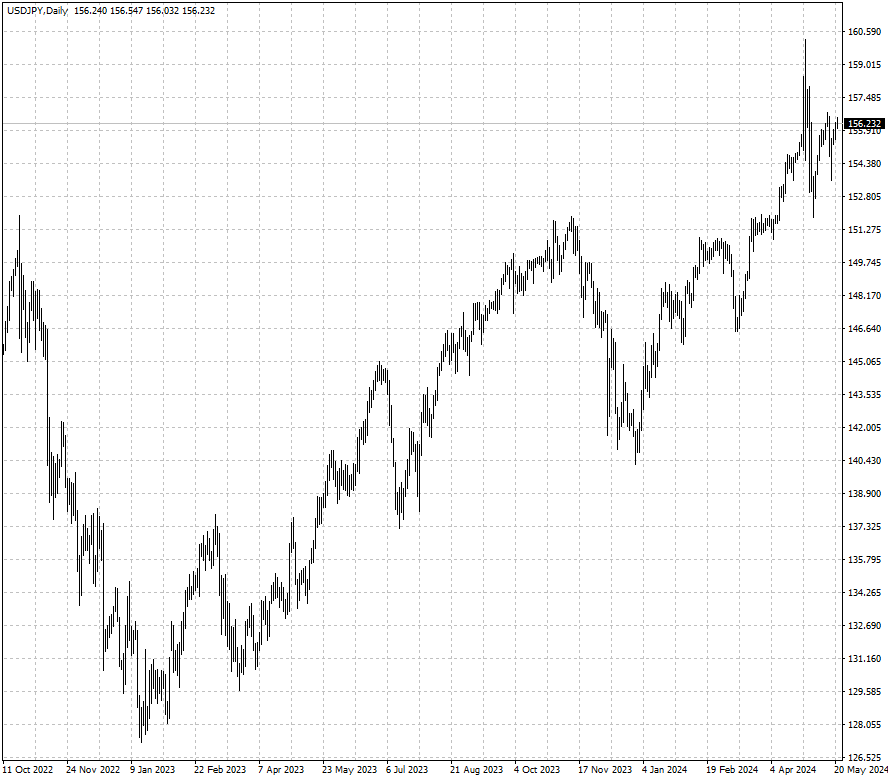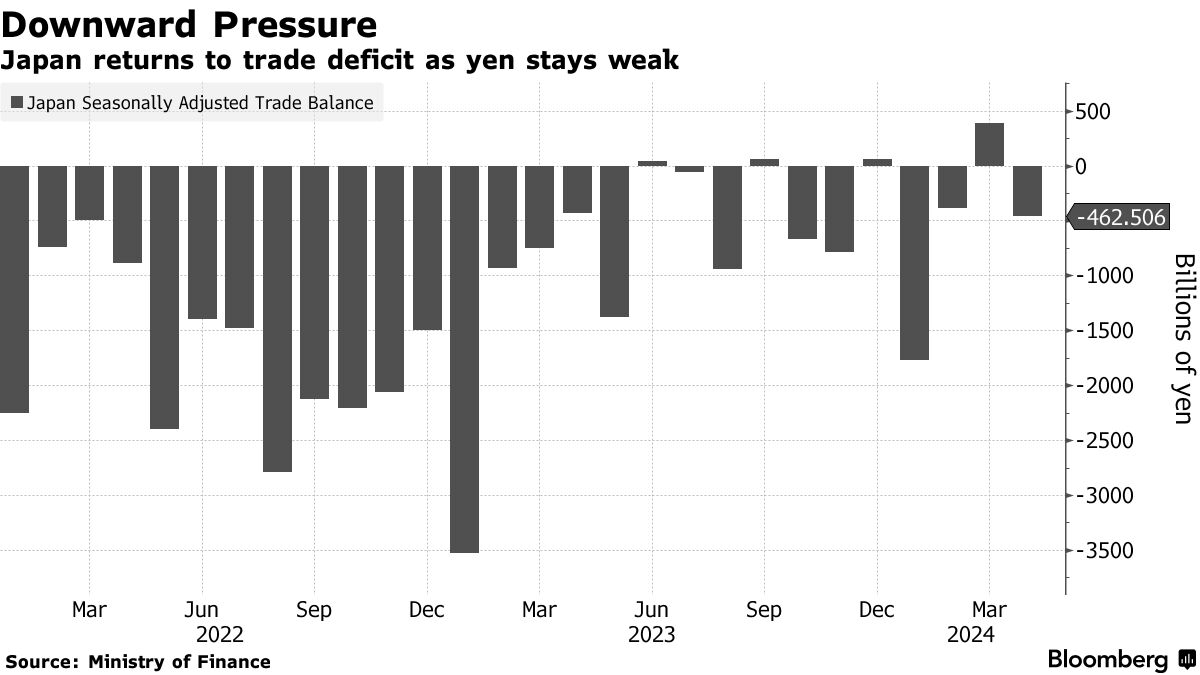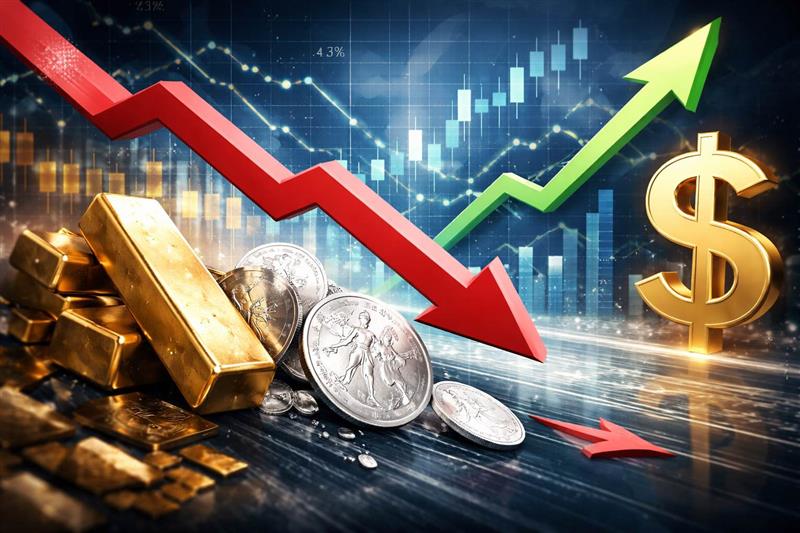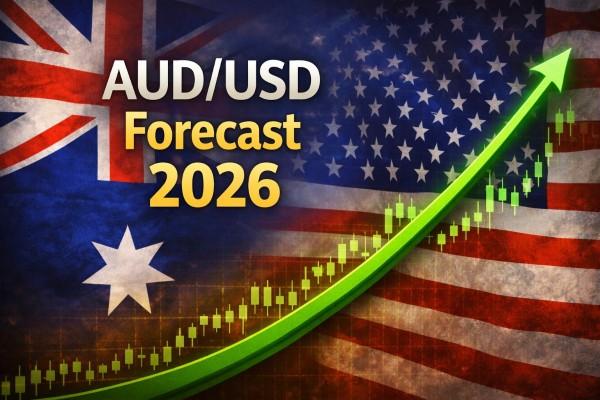Japanese Finance Minister Shunichi Suzuki said on Tuesday he was concerned
about the negative implications of the current weakness in the yen and its
effect on incentives to increase wages.
"One of our major goals is to achieve wage increases that exceed the rise in
prices," he said. "On the other hand, if prices continue to remain high, it will
be difficult to reach this target even if wages rise."

Yen bears have hit a home run this year, sending the currency to a new
34-year low of 160 in late April. As we predicted in our report for Q3 2023, the
yen is losing its safe haven status.
The sharp depreciation has become a headache for Japanese policymakers as it
hurts consumption and push up import cost. Recent upsurge in commodity prices
adds fuel to the fire.
About 64% of firms surveyed said the yen weakness eroded their profits as
they were unable to pass on rising costs to customers via price increases,
according to a report published by Teikoku Databank.
About half of surveyed companies said a yen trading around 110-120 to the
dollar would be appropriate – unattainable at least in the short run. The report
included both exporters and importers.
The currency is a "big problem," Japan Airlines Co. Chief Executive Officer
Mitsuko Tottori said earlier this month, adding that she would like to see it
retrace back to around 130 per dollar.
Last ditch
Selling pressures re-emerged following suspected interventions during this
month. The yen is languishing around 156, so the BOJ looks like an integral part
of the forthcoming effort to prop up the yen.
The central bank may raise interest rate as many as three more times this
year, with the next move potentially coming as early as June, according to a
former BOJ chief economist Toshitaka Sekine.
"My sense is that there is no problem at all even if they raise rates three
more times this year, provided conditions are sufficiently favourable," he said,
adding "there is nothing pre-determined."
Vanguard Group and PIMCO share his views that are more hawkish than those of
most BOJ watchers, although an increasing number of analysts have flagged the
risk of a July hike.
The BOJ's summary from its April policy gathering indicated more hawkish tilt
among the board, with one member saying the rate path may be higher than what
the market currently expects.
The BOJ is probably thinking a higher rate will be necessary if the yen
disrupts the price trend, given that businesses have started to adapt their
price-setting behaviour to inflation, Toshitaka said.
Key is whether a virtuous wage-price cycle can be clearly seen by the autumn
when economic indicators for July and August reflecting the impact of Shunto are
available, according to Western Asset Management.
Pinch of slowdown
Japan's economy fell faster than expected in Q1 as weak consumption bit,
throwing a fresh challenge to the central bank's push to take interest rates
further away from zero.
Downwardly revised data showed GDP barely grew in Q4 2023 and the
across-the-board declines in all GDP components suggest Japan's economy had no
major growth engine in the last quarter.
"It would be possible that the timing of rate hikes could be pushed back
depending on how the GDP may rebound in the current quarter," said Yoshimasa
Maruyama, chief market economist at SMBC Nikko Securities.
Economists are hopeful the recession will prove temporary and expect the drag
to growth from an earthquake in the Noto area and the suspension of operations
at Toyota's Daihatsu unit to dissipate.
Japan’s imports rebounded in April, pushing the nation’s trade balance into
deficit. The negative factor for GDP reflects the growing pain associated with a
falling local currency.

Exports to the US rose 8.8%. Strong demand in overseas markets signals that
the economy could return to growth in Q2 while underscoring positive outlook on
the US growth.
Japan's core consumer inflation probably slowed for a second straight month
to 2.2% from 2.6% in March in April from a year earlier, a Reuters poll showed,
leaving policymakers in a worse predicament.
Disclaimer: This material is for general information purposes only and is not
intended as (and should not be considered to be) financial, investment or other
advice on which reliance should be placed. No opinion given in the material
constitutes a recommendation by EBC or the author that any particular
investment, security, transaction or investment strategy is suitable for any
specific person.























